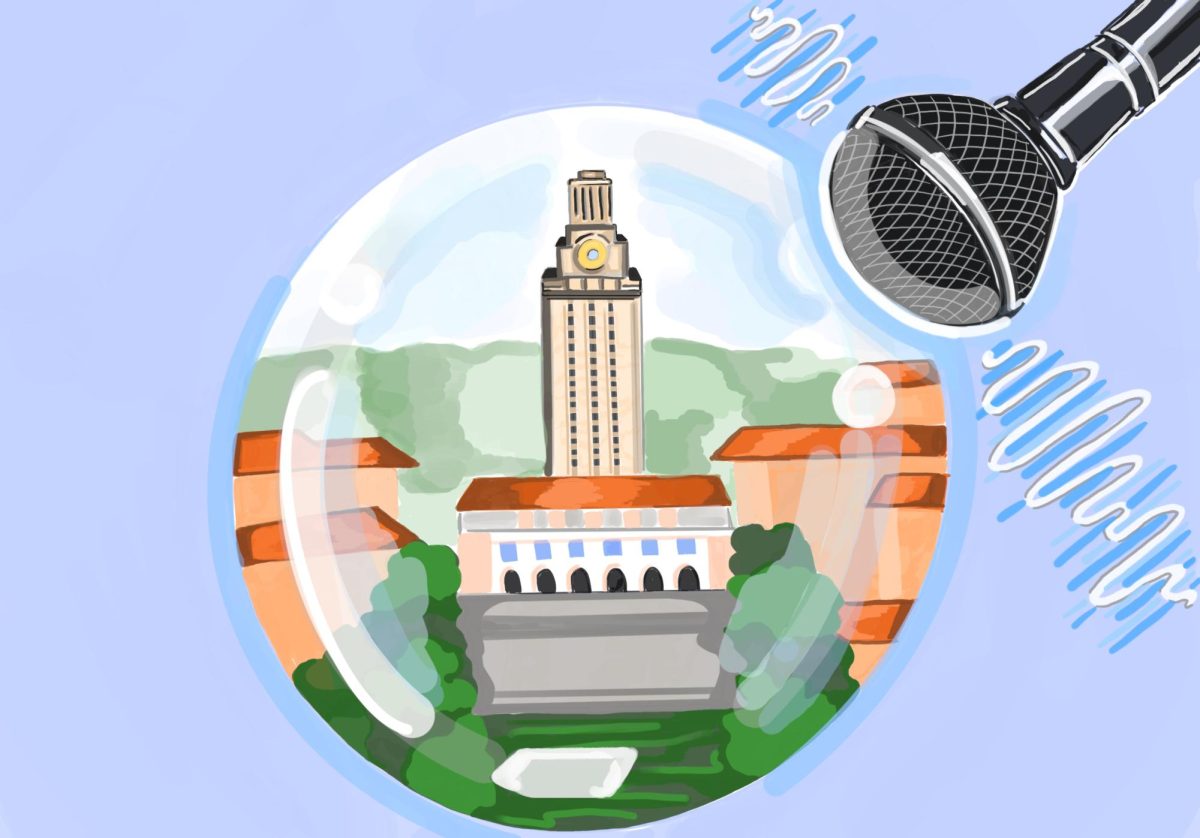It’s no secret: UT has a free speech problem. UT was ranked as one of the country’s worst colleges for free speech, according to analysis from the Foundation for Individual Rights and Expression. The American Council of Trustees and Alumni also released a report in June 2023, which found that 47% of students at least occasionally felt like they could not express themselves for fear of how students, professors or administration would react. Furthermore, only one-third of students think it is clear that the administration protects free speech on campus.
It is the University’s responsibility to promote a free exchange of ideas on campus. Instead, it is clear our campus environment is one in which students are hesitant to engage in discussion and unwilling to hear alternative perspectives.
According to Sean Stevens, research advisor for FIRE, UT’s ranking as the 8th-worst university for free speech in the country followed the University’s preemptive response to the pro-Palestine protests that took place on campus last April, including calling law enforcement before demonstrations even began.
“They hadn’t even started protesting yet, and (administration) called in the police because the governor tweeted something,” Stevens said. “That really damaged their score.”
This decision, following Gov. Greg Abbott’s cautionary tweet, showed a concerning lack of consideration for students’ free speech rights.
“Any time a university chooses to bring armed police on campus, it’s going to have a chilling effect on free expression,” said Amy Kristin Sanders, an associate professor in the School of Journalism and Media.
The University’s attempts to avoid controversy, even when not legally required to, further restrict students’ and faculty’s rights to political speech. This avoidance was further shown when two TAs were fired after attempting to provide mental health resources to students impacted by the Israel-Palestine conflict. Though they were later reassigned, the decision to fire them in the first place implies that UT is more interested in preventing controversy than ensuring the well-being of its own community members.
“There’s a number of events over time that just add up to the fact that the University of Texas is not attempting to promote a climate that fosters freedom of speech and fosters dissenting opinions,” Sanders said.
Despite opinions from students and faculty, UT has taken steps to ensure the free speech rights of its community members. These include the recently created Event Readiness and Response Team, which helps students conduct demonstrations responsibly, and Free Speech Week, a series of events that highlight the importance of free expression in academics. However, the purpose of these events falls short when paired with UT’s actions taken to restrict free speech on campus, such as calling law enforcement on student protestors and firing TAs for speaking on international conflict. UT must prioritize free speech all the time, not just when it is convenient.
These restrictions create an environment that is not conducive to freedom of expression, where community members are hesitant to express their views for fear of social backlash or academic consequences. Stevens said student testimonials played a role in their analysis, and many of them mentioned administrative actions as a reason for self-censorship.
Within Texas’ polarizing political climate, UT must promote open dialogue and ensure the First Amendment rights of its community. Although legislation poses certain legal limitations, the University is not excused from protecting free speech on campus. UT’s defense of these rights will promote a culture of free expression and open dialogue on campus.














